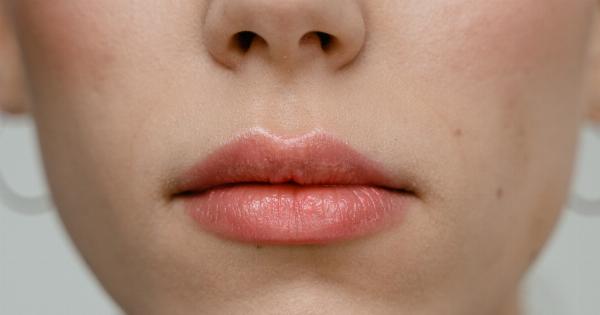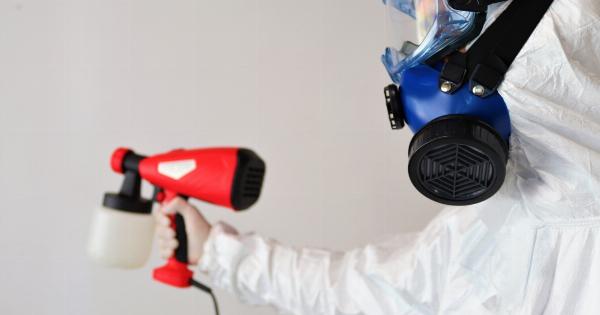Nose breathing and mouth breathing are two different ways the body takes in air. The way you breathe can have a significant impact on your overall health and well-being.
In this article, we will explore the differences between nose breathing and mouth breathing and discuss which one is better for your body.
What Is Nose Breathing?
Nose breathing refers to the act of inhaling and exhaling air solely through the nose. When we breathe through our noses, the air passes through the nasal cavity, which helps filter, warm, and humidify the air before it reaches the lungs.
This natural filtration system provides several benefits for our respiratory and overall health.
Benefits of Nose Breathing
There are several advantages to nose breathing:.
1. Improved Air Quality
When you breathe through your nose, the tiny hairs inside your nostrils called cilia trap dust, allergens, and other impurities present in the air.
Additionally, the mucus in your nasal passages helps to filter out bacteria and viruses, reducing the likelihood of respiratory infections.
2. Efficient Oxygen Exchange
The nasal cavity contains specialized blood vessels and tissues that enable efficient oxygen exchange with the bloodstream.
This means that the oxygen you breathe in gets delivered to your body’s cells more effectively, providing vital energy for various bodily functions.
3. Enhanced Moisture and Warmth
When air passes through your nose, it gets warmed and humidified, ensuring that the air reaching your lungs is at an optimal temperature and moisture level.
This helps prevent dryness and irritation of the respiratory system, particularly during cold or dry weather.
4. Reduced Breathing Volume
Nose breathing encourages slower and deeper breaths, which can help reduce breathing volume and promote diaphragmatic breathing.
This type of breathing activates the diaphragm muscles fully, contributing to optimal oxygen uptake and relaxation of the body.
What Is Mouth Breathing?
Mouth breathing, on the other hand, involves inhaling and exhaling air through the mouth instead of the nose.
This breathing pattern bypasses the natural filtration and conditioning mechanisms of the nasal passages, which can have some adverse effects on our health.
Drawbacks of Mouth Breathing
There are several disadvantages to mouth breathing:.
1. Reduced Air Quality
Mouth breathing allows unfiltered air to directly enter the respiratory system. This means that dust, pollutants, and allergens can easily make their way into the lungs, potentially leading to respiratory issues, allergies, and discomfort.
2. Inefficient Oxygen Exchange
When you breathe through your mouth, the oxygen uptake in the lungs may not be as efficient as when you breathe through your nose.
This is because the nasal cavity, with its specialized blood vessels, optimizes oxygen exchange, while the mouth does not provide the same level of efficiency.
3. Dryness and Irritation
Mouth breathing can cause dryness and irritation of the oral tissues, throat, and airways. This can lead to a sore throat, increased susceptibility to respiratory infections, and even bad breath due to reduced saliva production and lack of moisture.
4. Shallow Breathing
When breathing through the mouth, it is common to take shallow breaths, using only the upper chest and neck muscles.
This type of breathing limits the diaphragm’s involvement, resulting in suboptimal oxygen intake and potentially contributing to stress and anxiety.
Which One is Better: Nose Breathing or Mouth Breathing?
In most cases, nose breathing is considered superior to mouth breathing due to the various benefits it offers.
However, there are situations where mouth breathing may be necessary, such as during intense physical exertion or when the nasal passages are blocked due to congestion or allergies.
To promote nose breathing during sleep and throughout the day, it is essential to address any underlying conditions that may impede nasal breathing, such as deviated septum, allergies, or chronic nasal congestion.
In some cases, consulting with a healthcare professional or an otolaryngologist may provide additional insights and treatment options.
Conclusion
Nose breathing and mouth breathing are two distinct ways the body takes in air. Nose breathing offers significant advantages such as improved air quality, efficient oxygen exchange, enhanced moisture and warmth, and reduced breathing volume.
On the other hand, mouth breathing can result in reduced air quality, inefficient oxygen exchange, dryness and irritation, and shallow breathing.
While nose breathing is generally considered better for overall health, it is essential to address any underlying nasal issues that may hinder nose breathing.
Maintaining proper nasal function can help reap the benefits of nose breathing and contribute to better respiratory health and overall well-being.





























